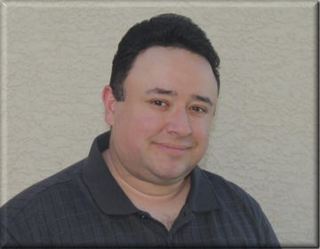A Quote by Dan Simmons
Speaking as a novelist myself, I know that members of our profession live in our imaginations as much or more as we inhabit what people call 'the real world.
Quote Topics
Related Quotes
The systems of stereotypes may be the core of our personal tradition, the defenses of our position in society. They are an ordered more or less consistent picture of the world, to which our habits, our tastes, our capacities, our comforts and our hopes have adjusted themselves. They may not be a complete picture of the world, but they are a picture of a possible world to which we are adapted. In that world, people and things have their well-known places, and do certain expected things. We feel at home there. We fit in. We are members.
The genius is not in how much Stanley Kubrick does in “2001: A Space Odyssey,'' but in how little. This is the work of an artist so sublimely confident that he doesn't include a single shot simply to keep our attention. He reduces each scene to its essence, and leaves it on screen long enough for us to contemplate it, to inhabit it in our imaginations. Alone among science-fiction movies, “2001'' is not concerned with thrilling us, but with inspiring our awe.
To be young and aware is to know you’re being lied to; to know that a bright green future is possible; to know that we can reimagine the world, rebuild our cities, redesign our lives, retool our factories, distribute innovation and creativity and all live in a world that is not only better than the alternative, but much better than the world we have now.
Question: Why are we Masters of our Fate, the captains of our souls? Because we have the power to control our thoughts, our attitudes. That is why many people live in the withering negative world. That is why many people live in the Positive Faith world. And you don't have to be a poet or a philosopher to know which is best.
Most of us live our lives desperately trying to conceal the anguishing gap between our polished, aspirational, representational selves and our real, human, deeply flawed selves. Dunham lives hers in that gap, welcomes the rest of the world into it with boundless openheartedness, and writes about it with the kind of profound self-awareness and self-compassion that invite us to inhabit our own gaps and maybe even embrace them a little bit more, anguish over them a little bit less.
Phonogram was explicitly about our world. It’s a fantasy which is happening around us all, unnoticed except for those who’ve fallen into its world. In a real way, it’s real. Conversely, W+D is much more overt. The appearance of the gods changes the world, and has changed the world going back. There’s the strong implication that certain figures in our world simply didn’t exist in The Wicked And The Divine‘s world, because they were replaced by a god.
Nothing other people do is because of you. It is because of themselves. All people live in their own dream, in their own mind; they are in a completely different world from the one we live in. When we take something personally, we make the assumption that they know what is in our world, and we try to impose our world on their world.
Yea, much more those that seem to be the more feeble members of the body, are more necessary. And such as we think to be the less honourable members of the body, about these we put more abundant honour; and those that are our uncomely parts, have more abundant comeliness. But our comely parts have no need[.
Growing up in colonial Virginia, if you know anything about that part of the country, there was a number of tensions there. Because of that, you heard the family members talk about Dr. King and many others who were not just speaking out, but sacrificing a ton so that our world, our country could be a better place.
Most of the people I've been fortunate enough to work with all share the same passion for creativity, for ingenuity, for playing make-believe and really just having fun. It doesn't matter if we're blowing up cars, or shooting an emotional scene in a police station, deep inside we all know our imaginations are at work, and our imaginations are manifesting into reality - at least momentarily for the cameras to capture.
I realize how myself and other people have started to almost fool ourselves that it's more important to us and more real than the real world, the offline world, and we value looking at our phone and pixels on a screen more than connecting eye to eye with a human being, which is terrifying to me because we're becoming robots.
I am a very big fan of the nation, actually. In Cicero's time, there was this idea that although we were members of the whole world of human beings, we also needed to connect our imaginations to a smaller unit. The smaller unit was something we knew we could live or die for, as Cicero died for the Roman republic.



































